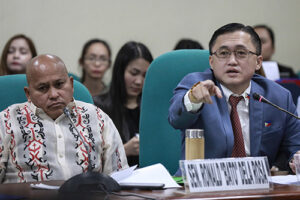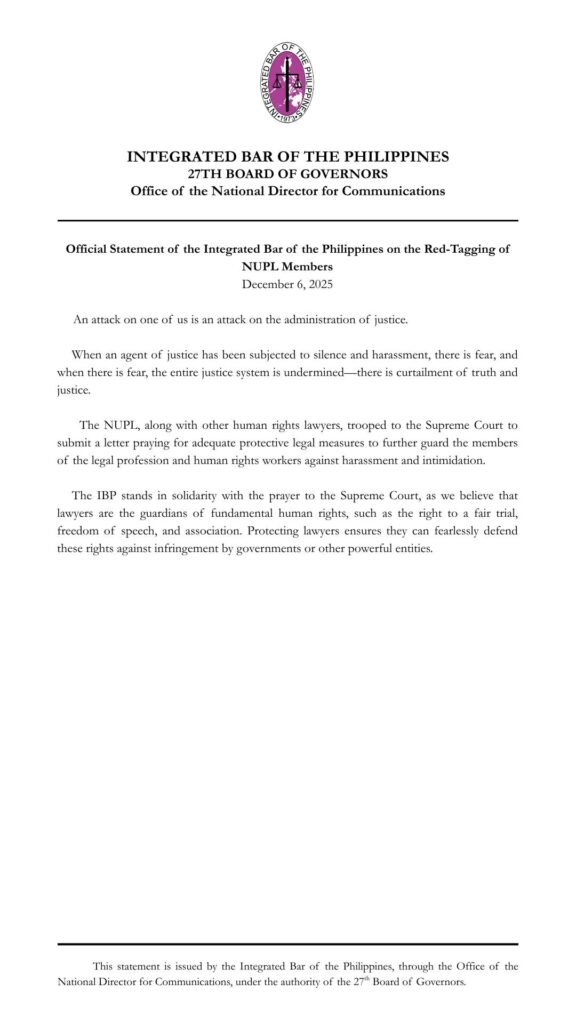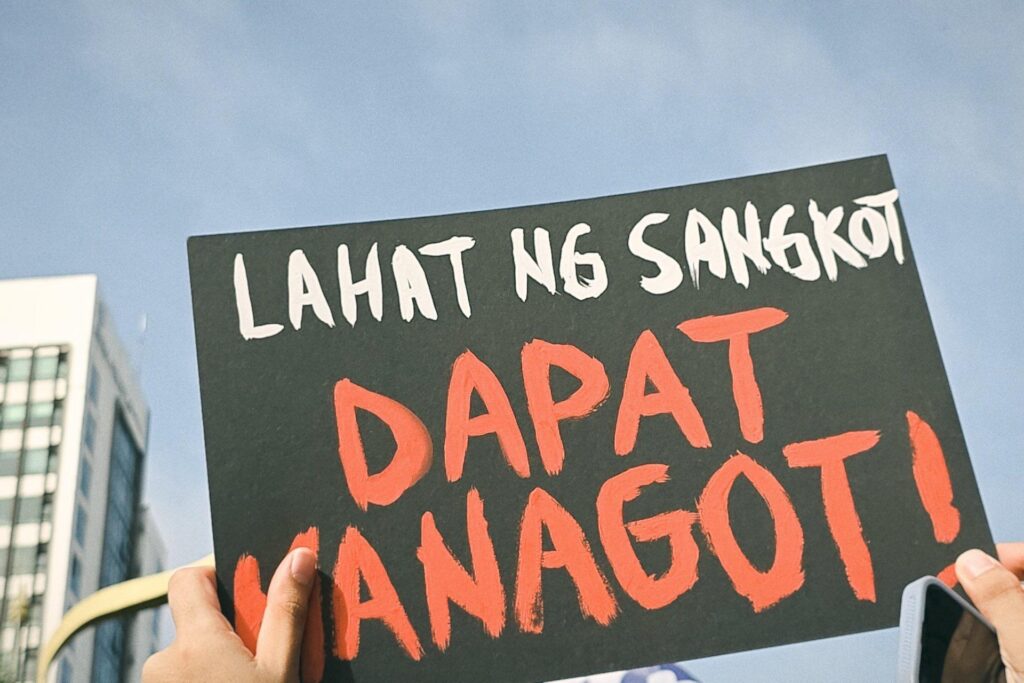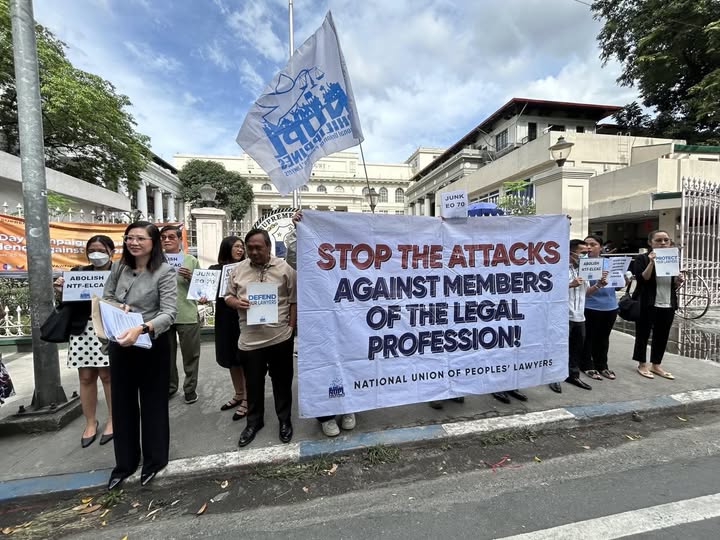📷: Sens. Ronald “Bato” dela Rosa and Christopher “Bong” Go | Senate PRIB
Human rights lawyer Kristina Conti stated that by late 2025, two incumbent senators might stand trial before the International Criminal Court.
During a Monday interview with political analyst Richard Heydarian, Kristina Conti, an assistant to counsel at the ICC, stated that the tribunal is advancing its investigation into the Duterte administration’s aggressive anti-drug campaign. She indicated that Senators Ronald Dela Rosa and Bong Go, both key allies of former President Rodrigo Duterte, could soon stand trial before the ICC.
“Bato, I’m pretty sure, will get a warrant of arrest,” Conti stated. “By later this year, possibly September, we might be looking at a sitting mayor on trial — assuming he wins. And we’re looking at two senators of the Republic being on trial.”
“The ICC is no longer just looking at Duterte,” Conti said. “They will look at who is responsible and, more importantly, who is most responsible. Those who enabled, carried out, or failed to stop the killings can be held liable under international law.”
Other than Dela Rosa and Go, other former officials, such as Justice Secretary Vitaliano Aguirre and former Interior Secretary Ismael Sueno, could face charges.
Under the doctrine of command responsibility enshrined in the Rome Statute, senior officials may be held accountable even if they did not physically participate in the killings.
“Those who knew about the killings and continued to support the policy without doing anything to stop it can be held criminally responsible,” Conti said. “The ICC is not like our local courts that require a person to have physically pulled the trigger.”
Duterte, currently detained in The Hague and facing crimes against humanity charges, has filed his candidacy for Davao City mayor in the midterm elections—an act that Conti calls a “stunning paradox.”
She warns that Duterte’s allies may attempt to frame ICC proceedings as political persecution rather than prosecution.
“They might use their positions to claim political persecution — not prosecution — and rally public sympathy,” she said.
The case, according to Conti, highlights the failure of Philippine institutions to hold powerful figures accountable, leading to ICC intervention under the Rome Statute’s command responsibility doctrine.
She urges the government to cooperate with the ICC to demonstrate a commitment to justice and human rights. (ZIA LUNA)




